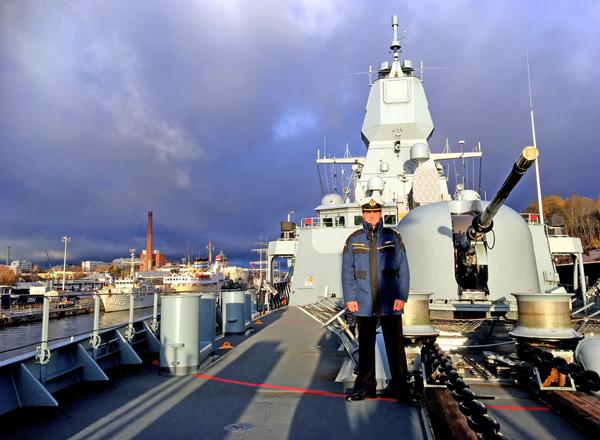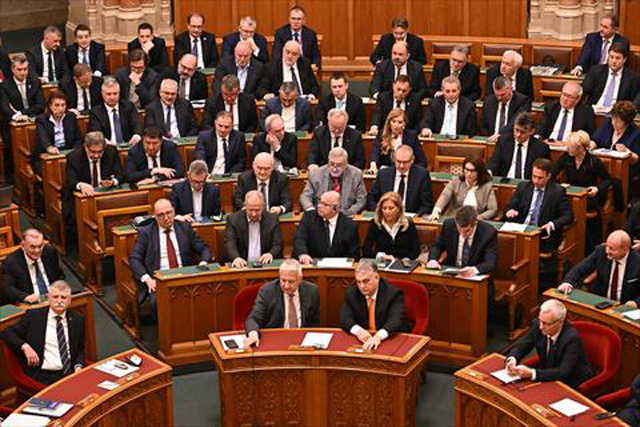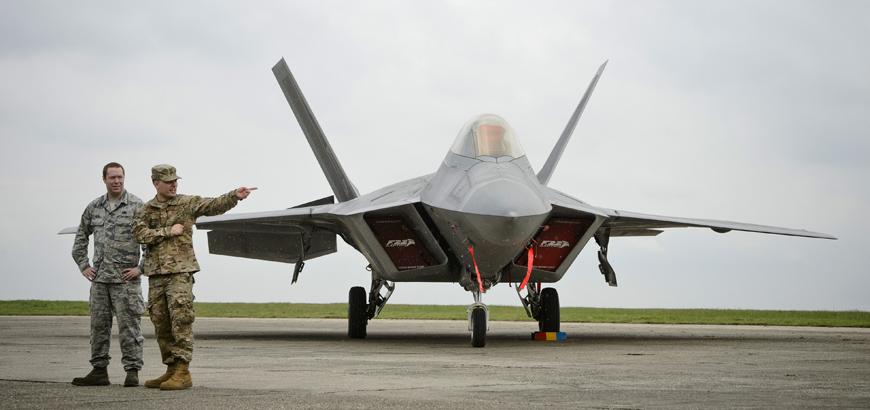You are here
Germany strengthens Baltic naval alliance to counter Russian buildup
By Reuters - Oct 27,2018 - Last updated at Oct 27,2018

German navy Captain Sven Beck poses for a photo in Turku, Finland, on Saturday (Reuters photo)
ON BOARD THE GERMAN FRIGATE HAMBURG — Worried by a military build-up on its doorstep, Germany is leading efforts to coordinate NATO and European Union naval forces better in the Baltic Sea to counter Russia's beefed up presence in the area.
On Monday, Germany begins exercises off the Finnish coast involving 3,600 sailors and troops, 40 ships and 30 aircraft from more than a dozen countries. The manoeuvres will focus on keeping crucial sea routes open in times of conflict.
"The Baltic Sea is our front yard, so we and our neighbours obviously want to be able to move freely on the sea lines of communication," Captain Sven Beck told reporters aboard the German frigate Hamburg.
Berlin has come under heavy pressure from US President Donald Trump to play a bigger military role at a time when Western countries are anxious about tensions in the Baltic region.
Russia has deployed missiles to its Kaliningrad enclave that can reach Berlin, NATO has thousands of troops in the region and Sweden — which like Finland remains outside the military alliance but is an EU member — is remilitarising its Gotland Island.
The Hamburg was moored in the Finnish port of Turku as one-by-one grey warships slipped into the harbour in preparation for the exercises, including a futuristic corvette from Sweden's Visby class. By evening snow flurries fell on a packed port as the Baltic winter began to set in.
The shallow waters and narrow straits of the Baltic make it easy to lay mines and hard to manoeuvre warships. Western military experts fear Russia could block the free movement of NATO ships, making it impossible to support the tiny Baltic states in case of a war.
Moscow says it is not threatening anyone and has the sovereign right to deploy weapons on its own territory including in Kaliningrad, which is separated from the rest of Russia and borders NATO members Poland and Lithuania.
During the exercises, naval vessels will practise clearing mines from harbour entrances, escort cargo ships through contested waters and simulate using force.
"The aim of our exercise is to secure the sea lines of communication, those lines that you can't see but that guarantee trade and prosperity in the countries along the Baltic coast," Beck said, using the military term for major sea routes.
Germany has been trying to bring the navies of NATO and EU countries on the Baltic closer together since Russia annexed Crimea from Ukraine in 2014, starting with regular meetings of fleet commanders the following year.
It is also building a new naval command centre in Rostock designed to house a permanent staff of international officers. In times of crisis, this will be able to lead NATO or EU operations in the Baltic from 2023.
More responsibility
Defence Minister Ursula von der Leyen said last month that as the biggest NATO and EU country on the Baltic, Germany must "take more responsibility for the region" — a sign it is slowly shedding its post-World War II reluctance to take the military lead.
Other Western countries welcome the German initiative. "We are very happy that Germany has taken the lead in that sense," Finnish navy chief Admiral Veijo Taipalus said.
Coordination was necessary, not least because Finland and Sweden could not access intelligence restricted to alliance members.
"We don't have a big navy, but in relation to the Baltic countries it is huge," said Capt. Beck. "So we are happy to take the responsibility."
Related Articles
BRUSSELS, Belgium — Sweden’s accession to NATO adds a final puzzle piece to the alliance around the shores of the strategically import
MIHAIL KOGALNICEANU AIR BASE, Romania — Two highly advanced US fighters flew to the Black Sea on Monday for the first time since Washington
PORT SUDAN, Sudan — A US warship docked in Sudan Monday a day after a Russian frigate arrived in the same key Red Sea port where Moscow is p
















